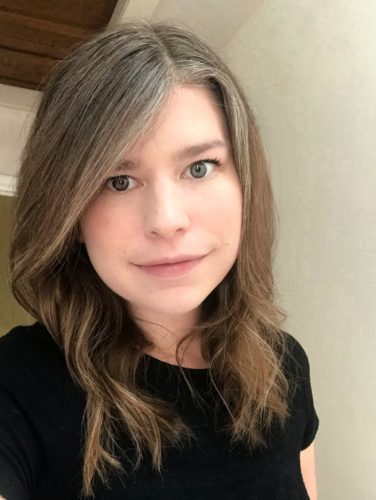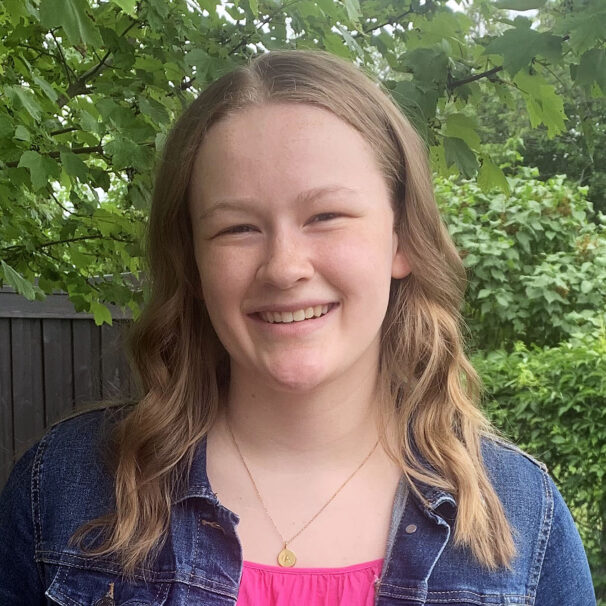Q&A
Q&A: The art of the memoir with Nellwyn Lampert
Writing teacher says digging into one’s past through memoir is difficult but worthwhile

caption
Nellwyn Lampert teaches a non-credit workshop on memoir for the University of King's College.Many people have spent long periods cooped up indoors during the pandemic, leaving those with writing aspirations more time to start creative projects. For some, it’s getting started on a memoir.
Nellwyn Lampert is a teacher and author based out of Toronto. She’s also a graduate of the University of King’s College Master of Fine Arts in creative non-fiction. Lampert is teaching two online workshops at King’s this term, including introduction to memoir writing. The author began teaching independently online in January of 2021, and she joined the King’s team in the fall. Lampert has never taught an in-person class. She spoke with The Signal from Toronto to discuss online teaching, fostering creativity, and approaches to writing a memoir.

caption
Nellwyn Lampert started teaching creative writing online through her personal website in January 2021.Q: How do you approach memoir writing?
I approach it from a reader-centric perspective. What do you have to share with them? What would you like to offer them? What do you hope they might take away from your book? Now, ultimately, you can’t control that to a certain extent…but, think about that person who’s picking up your book, you know. You’re asking someone to spend 30 dollars and eight, 10, 12 hours with you. So, make it worth it for them! And, you know, it’s a bit of a callous way of maybe putting it, but I think this is one of the overall artistic philosophies that I have, which is that we make art for other people. And of course, to a certain extent, we do it for ourselves, too, but that’s really the approach that I take with my students.
Q: How does it feel to have only taught online?
It’s weird. I like it because it means that I’ve had the opportunity to teach and meet people who otherwise I would never have met. I have a student who then became a client who’s in Ireland, and she’s just such an interesting person, she’s had such an interesting life, and I would never have met her if I was only teaching in person. So, when I think about the post-COVID era, whatever that is, I would really love to teach in person because I do think that there is a difference between being on a screen and being in person. But I also don’t know if I would ever stop teaching online completely or say, ‘Oh, I’m never teaching online again,’ just because COVID is over, because I think that would really limit the opportunities. It would be a shame not to be able to connect with people from all over the world.
Q: What would you tell the folks who have signed up for your workshop who are looking for tips to foster creativity?
Signing up for a workshop is probably the number one thing. I would recommend, at this point in isolation, trying to find online classes that are live.
The thing that I found most helpful is doing the morning pages journaling habit from The Artist’s Way by Julia Cameron. When I can’t go to art galleries and I can’t go to poetry readings, doing those pages every day has been the number one kind of most important thing for keeping the creativity just percolating.
Q: What’s one thing about writing workshops, and the writing process, that a lot of people wouldn’t know?
In terms of writing workshops, I think that a lot of people don’t know or expect or anticipate that they might form relationships and communities that will last long after the class is over. Especially with something like writing a memoir, where it is very personal, you know, we don’t write memoir about the boring times of our life. We write about often some of the hardest times of our lives, so it’s really important to create a supportive, safe, comfortable environment in the class.
In terms of what people don’t expect about the writing process, to be perfectly honest, a lot of people don’t expect it to be as hard as it is, or as much work as it is. It’s often hard work, especially with memoir, to go into some of these difficult things. And you have to be very sure that you’re in a place in your life with your own mental health that it’s comfortable to revisit maybe some difficult memories. That’s work, but it’s so worth it.
About the author

Aidan Rawding
Aidan is in her fourth year of the BJH program at King's.